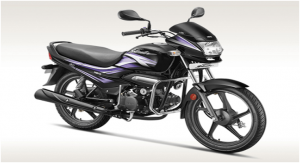JEE 2020 Syllabus and Exam Pattern
With the month of April approaching, we know that you are quite anxious to get more information about JEE Main 2020. We are here to assist you with the latest updates about the syllabus and the exam pattern.
The National Testing Agency (NTA) has released the IIT JEE Syllabus 2020. This year onwards JEE Main will be conducted for three papers- Paper 1 (Mathematics, Physics and Chemistry), Paper 2 (Aptitude, Drawing and Mathematics) and Paper 3 (Mathematics, Aptitude Test and Planning Based Questions).
As the candidates must be aware, Main 2020 is being held twice a year. Held during 6th to 11th January, the first session is over while the second session will be conducted from April 3rd to 9th, 2020.
Syllabus of JEE Main 2020
Paper I
- Syllabus of Mathematics
| Mathematics | Complex numbers and quadratic equations |
| Matrices and determinants | |
| Sets, Relations and Functions | |
| Mathematical induction | |
| Permutations and Combinations | |
| Mathematical reasoning | |
| Limit, Continuity and Differentiability | |
| Integral Calculus | |
| Three-dimensional Geometry | |
| Differential Equations | |
| Binomial Theorem and its Simple Applications | |
| Vector Algebra | |
| Statistics and Probability | |
| Trigonometry | |
| Coordinate Geometry | |
| Sequences and Series |
- Syllabus of Physics
| Physics (Section A) | Physics and measurement |
| Rotational Motion | |
| Thermodynamics | |
| Kinematics | |
| Work, Energy and Power | |
| Properties of Solids and Liquids | |
| Gravitation | |
| Laws of Motion | |
| Oscillations and Waves | |
| Electronic devices | |
| Kinetic theory of gases | |
| Current electricity | |
| Communication systems | |
| Electromagnetic induction and alternating currents | |
| Magnetic effects of current and magnetism | |
| Optics | |
| Electromagnetic waves | |
| Atoms and nuclei | |
| Electrostatics | |
| Dual nature of matter and radiation | |
| Physics (Section B) | Experimental Skills |
- Syllabus of Chemistry
| Chemistry (Physical Chemistry) | Some Basic Concepts in Chemistry |
| States of Matter | |
| Atomic Structure | |
| Chemical Bonding and Molecular Structure | |
| Chemical Thermodynamics | |
| Solutions | |
| Equilibrium | |
| Redox Reactions and Electrochemistry | |
| Chemical Kinetics | |
| Surface Chemistry | |
| Chemistry (Organic Chemistry) | Purification and Characterisation of Organic Compounds |
| Hydrocarbons | |
| Chemistry in Everyday Life | |
| Principles related to Practical Chemistry | |
| Organic Compounds containing Halogens | |
| Organic Compounds containing Oxygen | |
| Organic Compounds containing Nitrogen | |
| Polymers | |
| Some Basic Principles of Organic Chemistry | |
| Biomolecules | |
| Chemistry (Inorganic Chemistry) | Classification of Elements and Periodicity in Properties |
| Hydrogen | |
| Block elements (alkali and alkaline earth metals) | |
| P Block elements group 13 to group 18 elements | |
| d- and f – block elements | |
| Co-ordination compounds | |
| Environmental chemistry | |
| General Principles and Processes of Isolation of Metals |
JEE Exam Pattern
There are some new changes which have been introduced Main 2020 onwards. The JEE Question Paper will now have 25 questions per section instead of 30. Out of the 25 questions per section, there will be 5 numerical questions. Here are the details:
Paper I
- Mode of Exam: Computer-Based
- Number of Questions: 75 ( with 25 (20 + 5 numerical) questions per section)
- Duration: 3 Hours
- Subjects: Physics, Chemistry and Mathematics
- Question Type: MCQ
- Marking Scheme: +4 for every correct response. -1 for every incorrect response. No marking for unattempted questions.
- Maximum Marks: 300
To know more, visit BYJU’S!











Post Comment